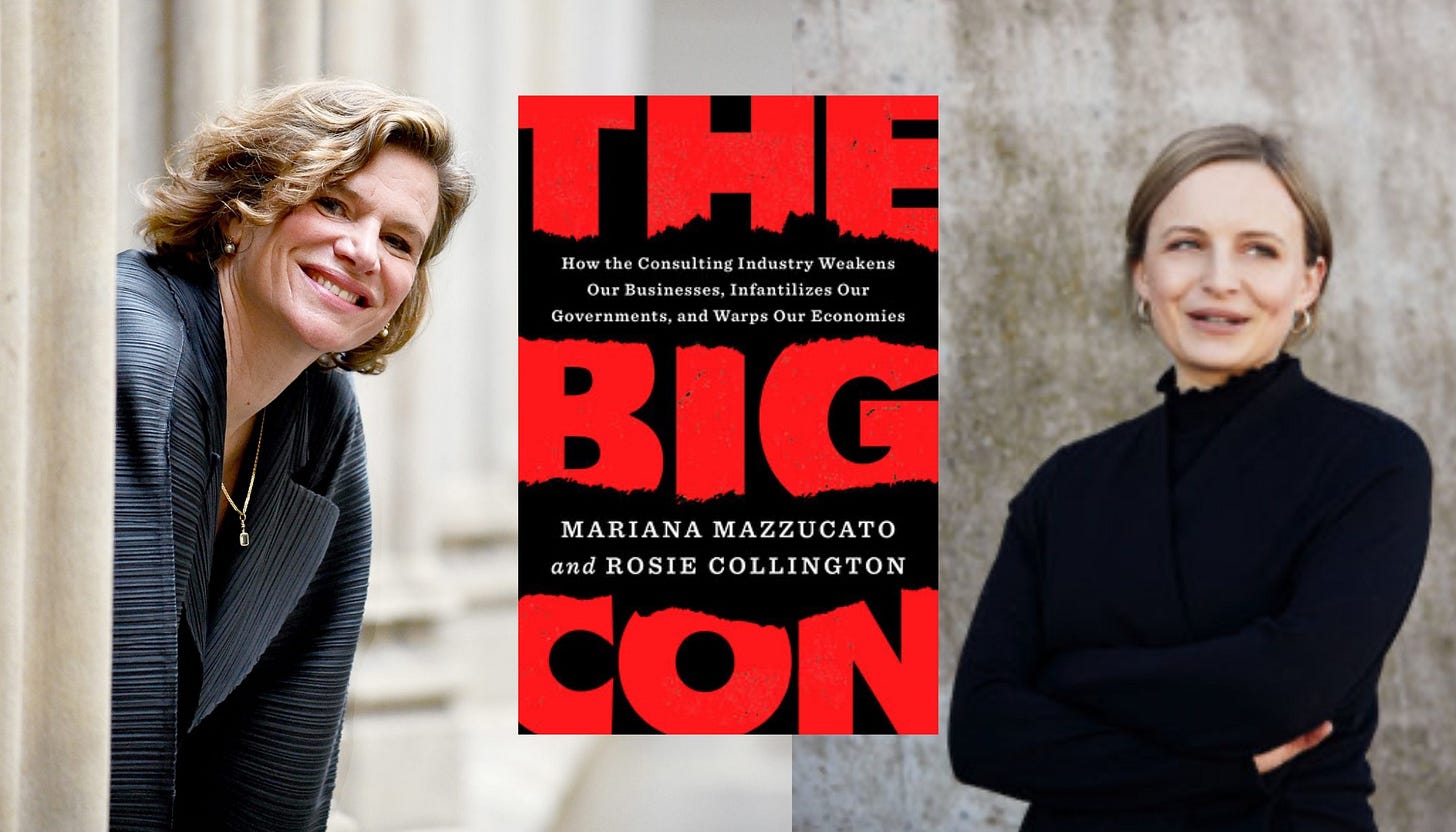The Consulting Industry’s New Con
Big Consulting is cashing in on the promise that market forces and profit motives can solve the world’s problems.

This morning The American Prospect published my latest story: “Big Consulting’s New Con.”
Big Consulting’s efforts to profit from the climate crisis and other pieces of the stakeholder capitalism movement represent the latest version of a capture-and-extract playbook that the industry has been developing for decades. The rhetoric of “environmental, social, and governance,” or ESG, may sound novel, and the intentions behind it may sometimes be genuine, but the consequences are predictable—and dangerous. Governments and businesses become increasingly dependent on the services and consent of consultants, while public policy “solutions” become narrowly limited to those that are also profitable for the consulting industry and its corporate clients.
Centering on Mariana Mazzucato and Rosie Collington’s new book, The Big Con: How the Consulting Industry Weakens Our Businesses, Infantilizes Our Governments, and Warps Our Economies, the article explores how the consulting industry profits off promises of “sustainability,” “ESG,” “purpose,” and other feel-good topics.
As some readers of this newsletter know (and as I mention in the article), I first encountered this topic as an employee of a Big Four accounting and consulting firm who was tasked with researching and writing about “purpose-driven business.”
Absent any legal or regulatory requirements, Big Consulting has every economic incentive not to offer proposals that would actually address the drivers of climate change but rather to push “solutions” that fit a narrow set of criteria: private sector-led, profit-oriented, and devoid of legally binding commitments or government mandates. It is a business model that depends on creating a perception of problems being solved while in reality perpetuating the need for the problem-solvers’ services.
One point that I try to emphasize in the story, as well as in much of my writing about corporate power, is that these issues frequently have little to do with individual intentions, and everything to do with structural incentives.
You can read the full story here: “Big Consulting’s New Con.” Many thanks to Ryan Cooper and David Dayen at The American Prospect.



